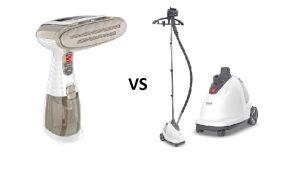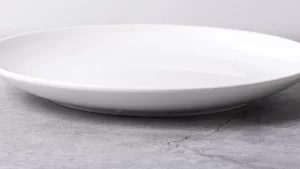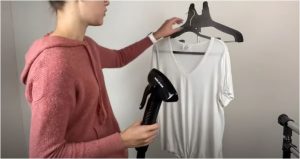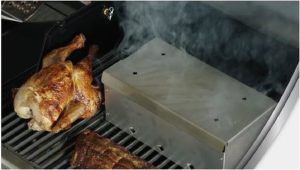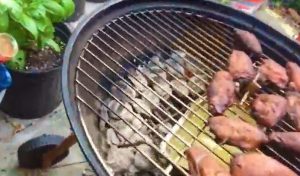5 Common Alfresco Grill Problems and How to Solve Them
Alfresco Grill Problems can impact the performance and efficiency of your outdoor cooking experience. Common issues include uneven heating, ignition difficulties, low flame or reduced heat output, flare-ups, and rust or corrosion.
To address these problems, it’s essential to regularly clean and maintain the grill components, such as burners, heat plates, and grill grates. Proper storage and the use of a protective cover can also help prevent rust formation.
By taking preventive measures and promptly addressing any issues, you can ensure a safe and enjoyable grilling experience with your Alfresco Grill.
How Does an Alfresco Grill Work?
An Alfresco Grill operates using a combination of gas burners, heat plates, and grill grates to cook food. The gas burners generate heat, which is then distributed evenly across the cooking surface by the heat plates.
The grill grates provide a surface for the food to cook on, allowing for the signature grill marks and sear. The grill’s design promotes efficient heat distribution and retention, ensuring consistent cooking results.
The gas burners in an Alfresco Grill mix fuel (propane or natural gas) with air in the venturi tubes, creating a combustible mixture. This mixture is ignited by the grill’s ignition system, producing a flame that heats the heat plates and grill grates.
The heat plates also serve to vaporize any drippings from the food, creating flavorful smoke that enhances the taste of the grilled items.

5 Common Alfresco Grill Problems and How to Solve Them
1. Uneven Heating and Hot Spots
- Inspect Burners: Check for clogged or damaged burners, which can cause uneven heat distribution. Clean the burners using a soft brush or pipe cleaner to remove debris.
- Examine Heat Plates: Ensure heat plates are in good condition and properly positioned. Replace any damaged or rusted plates to improve heat distribution.
2. Difficulty Igniting the Grill
- Check Ignition System: Inspect the igniter, battery, and wiring for damage or corrosion. Replace any faulty components to restore proper ignition function.
- Clean Burner Tubes: Clear any debris or buildup from the burner tubes using a soft brush or pipe cleaner, as blockages can prevent gas flow and ignition.
3. Low Flame or Reduced Heat Output
- Inspect Gas Supply: Ensure the propane tank is full and the regulator is functioning correctly. Replace the tank or regulator if necessary.
- Clean Venturi Tubes: Remove any obstructions from the venturi tubes, which mix air and gas for combustion. Use a venturi brush or pipe cleaner to clear debris and improve gas flow.
4. Flare-Ups and Grease Fires
- Regular Cleaning: Clean the grill grates, burners, and heat plates regularly to prevent grease buildup, which can cause flare-ups.
- Use a Drip Pan: Place a drip pan beneath the cooking area to catch grease and reduce the risk of grease fires.
5. Rust and Corrosion
- Protective Cover: Use a grill cover to protect your alfresco grill from the elements and prevent rust formation.
- Regular Maintenance: Inspect and clean the grill components regularly, and replace any rusted or corroded parts to maintain optimal performance.

How to Turn On Alfresco Grill?
1. Ensure Gas Supply: Before turning on the Alfresco Grill, make sure the propane tank is full or the natural gas supply is connected. Open the valve on the propane tank or turn on the natural gas supply.
2. Open Grill Lid: Lift the grill lid to prevent gas buildup and ensure proper ventilation during ignition.
3. Ignition Process: Locate the ignition button or knob on the grill’s control panel. Turn the control knob to the “light” or “ignite” position, then press the ignition button or hold the knob down for a few seconds. This will send a spark to the burner, igniting the gas and air mixture.
4. Adjust Burners: Once the grill is lit, adjust the burner control knobs to the desired heat setting. Allow the grill to preheat for 10-15 minutes before placing food on the grates.
Alfresco Grill Problems: The Preventive Actions
1. Regular Cleaning
To prevent common smoker grill problems, clean the grill grates, burners, and heat plates regularly. This will help avoid grease buildup, flare-ups, and uneven heating.
2. Proper Storage
Store the grill in a dry, sheltered area when not in use. Use a grill cover to protect it from the elements and prevent rust formation.
3. Inspect Components
Periodically inspect the grill’s components, such as the burners, heat plates, and ignition system, for signs of wear or damage. Replace any faulty parts to maintain optimal performance.
4. Monitor Gas Supply
Keep an eye on the propane tank level or natural gas supply to ensure consistent heat output. Replace the tank or address any gas supply issues as needed.
5. Ventilation
Ensure proper ventilation around the grill during use to prevent gas buildup and potential ignition issues. Keep the grill lid open during the ignition process and maintain a safe distance from flammable materials.
FAQs
What Causes Uneven Heating in an Alfresco Grill?
Uneven heating can result from clogged or damaged burners and improperly positioned or damaged heat plates. Regularly clean the burners and heat plates, and replace any damaged components to ensure even heat distribution.
Why Is My Alfresco Grill Not Igniting?
Ignition issues can stem from a faulty igniter, corroded battery, damaged wiring, or blocked burner tubes. Inspect these components, clean the burner tubes, and replace any damaged parts to restore proper ignition function.
How Can I Fix Low Flame or Reduced Heat Output?
Low flame or reduced heat output may be due to an empty propane tank, a malfunctioning regulator, or blocked venturi tubes. Check the gas supply, replace the regulator if necessary, and clean the venturi tubes to improve gas flow.
How Do I Prevent Flare-Ups and Grease Fires?
To prevent flare-ups and grease fires, clean the grill grates, burners, and heat plates regularly to remove grease buildup. Additionally, use a drip pan beneath the cooking area to catch grease and reduce fire risk.
How Can I Protect My Alfresco Grill from Rust and Corrosion?
Use a grill cover to shield your Alfresco Grill from the elements and prevent rust formation. Regularly inspect and clean the grill components, and replace any rusted or corroded parts to maintain optimal performance.
How Often Should I Clean My Alfresco Grill?
Clean your Alfresco Grill after every use to prevent grease buildup and potential flare-ups. Perform a deep cleaning of the burners, heat plates, and grill grates at least once per grilling season or more frequently if used heavily.
Read More:

